Truth Unveiled: Avocado Mattress Lawsuit Explained
Did you know the Avocado mattress lawsuit has sparked a major debate about transparency in the mattress industry? As an advocate for non-toxic living, I’ve been following this case closely. It’s not just about a legal dispute; it’s about our right to make informed choices for our homes.
This article will delve into the lawsuit’s key details, its impact on consumer trust, and the broader implications for the industry. We’ll also discuss how to navigate these murky waters and ensure you’re choosing truly non-toxic products for your home.
Remember, knowledge is power. Let’s arm ourselves with the facts and continue our journey towards healthier, more sustainable living.
Overview of the Avocado Mattress Lawsuit
The Avocado mattress lawsuit is a story that began on April 28, 2023, when a class-action case was filed in California’s federal court. The lawsuit accused Avocado Mattress of misleading advertising, claiming their products were free from synthetic and non-toxic chemicals. Akeem Pina and Richard Roberts led the case, representing customers who purchased Avocado mattresses. Despite the serious allegations, the lawsuit was dismissed on August 11, 2023. The specifics of the dismissal remain confidential, hinting at a potential settlement.
Allegations and Claims
The lawsuit alleged that Avocado used synthetic chemicals in their latex manufacturing process, including Wingstay-L, pentyl furan, and naphthenic hydrocarbon oils, potentially violating California’s Prop 65. Plaintiffs argued that Avocado misrepresented their products by not disclosing these chemicals. The allegations included violations of the California Consumers Legal Remedies Act, fraud, deceit, misrepresentation, unjust enrichment, and breach of contract.
Parties Involved and Legal Proceedings
In the Avocado mattress lawsuit, plaintiffs Akeem Pina and Richard Roberts represented a class of consumers against Avocado Mattress LLC. The case was managed by a law firm with expertise in consumer protection. Although the lawsuit was dismissed in August 2023, Avocado’s co-founder dismissed the allegations as baseless and unproven.
Avocado’s Response to the Lawsuit
Statements and Defense Strategy
Avocado denied all allegations, asserting their products are organic and non-toxic. The company emphasized its dedication to environmental responsibility and accurate product descriptions. Avocado issued a statement refuting the claims and expressed its intention to defend itself vigorously, highlighting its use of natural flame retardants and adherence to safety standards.
Potential Settlements and Case Dismissal
The lawsuit was dismissed on August 11, 2023, and Avocado was unable to discuss the dismissal, suggesting a possible settlement with a confidentiality clause. The dismissal indicates there is no legal reason to avoid purchasing Avocado products. Avocado agreed to modify its marketing and labeling practices and conduct additional product testing.
Avocado’s Commitment to Organic and Non-Toxic Products
Environmental and Safety Standards in Question
The lawsuit questioned Avocado’s claims of being ‘natural’, ‘organic’, and free from synthetic and non-toxic materials. Allegations of potentially harmful chemicals in the manufacturing process raised concerns about transparency and accuracy in product advertising.
Certifications Held by Avocado
Avocado uses certified organic materials, including GOTS-certified organic materials. The company’s latex foam is certified by the Global Organic Latex Standard (GOLS), eco-INSTITUT, and the Forest Stewardship Council (FSC). Additional certifications include OEKO-TEX STANDARD 100, MADE SAFE, GREENGUARD Gold, and Formaldehyde-Free Claim Verification from UL. Avocado adheres to the Federal Trade Commission (FTC) Green Guides for marketing claims.
Impact of the Lawsuit on the Mattress Industry and Consumers
The Avocado mattress lawsuit has stirred significant discussion about greenwashing and consumer trust within the mattress industry. It underscores the importance of transparency and regulation, prompting consumers to be more vigilant about their purchases.
Concerns about Greenwashing
The lawsuit highlights the issue of greenwashing in the mattress industry. Terms like ‘natural’ and ‘eco-friendly’ are not well-regulated, leading to potential consumer deception. The case has sparked a broader conversation about the need for transparency and regulation in the industry.
Effect on Consumer Trust and Market Consequences
The dismissal led to a loss of confidence in Avocado by some consumers. The lawsuit may prompt Avocado to change its practices if the allegations are true. Despite the lawsuit, Avocado remains a popular choice among eco-conscious consumers. Consumers are encouraged to research certifications and standards when purchasing organic products.
FAQs about the Avocado Mattress Lawsuit
What were the main allegations in the Avocado mattress lawsuit?
The main allegations included false advertising of products as free of synthetic and nontoxic chemicals, claims of using potentially harmful chemicals in the latex manufacturing process, and misrepresentation of product safety and organic certifications.
How did Avocado respond to the lawsuit claims?
Avocado denied all allegations, maintaining their products are organic and non-toxic. The company emphasized its commitment to environmental responsibility and accurate product descriptions. Avocado agreed to make changes to its marketing practices and conduct additional testing.

What certifications do Avocado mattresses hold?
Certifications include GOTS, GOLS, eco-INSTITUT, FSC, OEKO-TEX STANDARD 100, MADE SAFE, GREENGUARD Gold, and Formaldehyde-Free Claim Verification from UL.
Was there a settlement in the Avocado mattress lawsuit?
The lawsuit was dismissed on August 11, 2023, with details remaining confidential, suggesting a possible settlement.
How can consumers ensure they are buying truly organic products?
Consumers should research product certifications and standards. Look for certifications like GOTS, GOLS, and others that verify organic and non-toxic claims. Be aware of marketing claims and verify them through independent sources.
Conclusion: Lessons from the Avocado Mattress Lawsuit
The lawsuit underscores the importance of transparency and accuracy in product advertising. It highlights the need for more regulation in the mattress industry regarding organic and non-toxic claims. Consumers should be vigilant and informed about product certifications and marketing claims. The case serves as a reminder for companies to maintain high standards of honesty and integrity in their advertising practices.
Overview of the Avocado Mattress Lawsuit
The Avocado mattress lawsuit has been quite the rollercoaster in the mattress world, and it’s one that caught my attention back in April 2023. I remember reading about it and feeling a mix of surprise and concern. This lawsuit, filed in California’s federal court, brought to light some serious allegations against Avocado Mattress, a brand many of us have come to trust for its eco-friendly ethos. The plaintiffs, Akeem Pina and Richard Roberts, took the lead in this class-action suit, representing a wider group of consumers who felt misled by Avocado’s advertising.
Now, I know how crucial it is to trust the products we bring into our homes, especially when they claim to be free from synthetic and harmful chemicals. The lawsuit challenged Avocado’s marketing, arguing that their mattresses weren’t as free from synthetic or toxic substances as advertised. This really highlighted the need for transparency in product marketing, something I always advocate for. It’s a reminder of how important it is to scrutinize health and environmental claims, which are often pivotal in our decision-making processes.
Fast forward to August 11, 2023, and the Avocado mattress lawsuit was dismissed by the court. The details of this dismissal are shrouded in confidentiality, sparking speculation about a potential settlement. While we might never know the specifics, this outcome underscores the complexities of legal disputes over product claims. It also serves as a reminder of the challenges involved in proving such allegations in court. For me, it reinforced the importance of being an informed consumer and the ongoing journey towards living a non-toxic lifestyle.
Allegations and Claims
When I first heard about the Avocado mattress lawsuit, it struck a chord with me. The allegations uncovered some unsettling truths about the presence of synthetic and potentially toxic chemicals in the latex used by Avocado. Imagine finding out that substances like Wingstay-L, pentyl furan, and naphthenic hydrocarbon oils might be lurking in something as personal as your mattress. These chemicals are known to breach California’s Proposition 65, which is designed to protect us from harmful substances.
Akeem Pina and Richard Roberts, the plaintiffs in this case, felt deceived. They claimed that Avocado misled consumers by not disclosing these chemicals. This alleged misrepresentation was at the heart of several legal claims, including breaches of the California Consumers Legal Remedies Act. The lawsuit accused Avocado of fraud and deceit, suggesting the company profited unfairly by misleading us about the safety of their products.
Moreover, the plaintiffs argued that Avocado didn’t live up to their promises. They felt the company failed to deliver the non-toxic, synthetic-free products that were advertised. The Avocado mattress lawsuit thus raised important questions about transparency and honesty, especially when it comes to products marketed as organic and non-toxic.
For those of us striving for a non-toxic lifestyle, this case serves as a reminder to stay vigilant and informed. It’s crucial to look beyond the marketing and understand what truly lies beneath the surface of the products we bring into our homes. Let’s continue to support each other on this journey towards healthier living, one informed choice at a time.
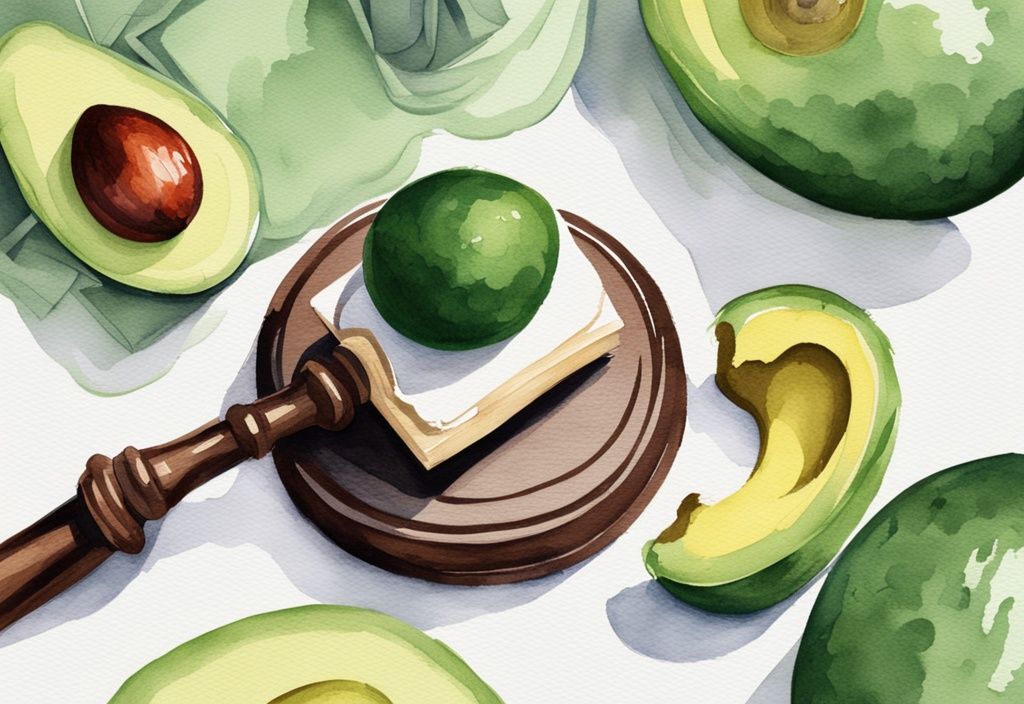
Parties Involved and Legal Proceedings
When I first heard about the Avocado mattress lawsuit, it struck a chord with me. As someone who deeply values transparency in product advertising, I found myself drawn to the story of Akeem Pina and Richard Roberts. These two individuals took on the role of champions for a group of consumers who felt misled by Avocado Mattress LLC’s marketing claims. The heart of their lawsuit was the allegation that Avocado falsely advertised its mattresses as free from synthetic and toxic chemicals. This was more than just a legal battle; it was a quest for honesty and clarity in the products we bring into our homes.
On the flip side of this legal saga, Avocado Mattress LLC stood firm. The company faced serious accusations that threatened its reputation and marketing strategies. Yet, Avocado was unwavering in its defense, asserting that its products were genuinely organic and non-toxic. They were backed by a law firm renowned for its expertise in consumer protection cases, which played a pivotal role in navigating the legal waters.
August 2023 marked a turning point in the Avocado mattress lawsuit. The case was dismissed, though the specifics of why remain under wraps. Avocado’s co-founder publicly dismissed the allegations as unfounded, a stance that resonated with the court’s decision. This outcome left many, including myself, pondering the broader implications for both Avocado and the mattress industry at large. It was a moment that underscored the complexities of consumer trust and corporate responsibility, themes that are close to my heart as I strive to guide others towards non-toxic living.
Avocado’s Response to the Lawsuit
Avocado Mattress LLC has been at the center of attention due to the Avocado mattress lawsuit. This section delves into how the company has navigated these challenging waters, offering insights into their defense strategy and the eventual resolution of the case.
Statements and Defense Strategy
When I first heard about the Avocado mattress lawsuit, I was genuinely curious about how Avocado Mattress LLC would respond. The company swiftly denied all allegations, standing firm on their claim that their mattresses are organic and non-toxic. They emphasized their unwavering commitment to environmental responsibility, something that resonates deeply with me. Avocado’s public statement was clear and assertive, outlining their intent to defend themselves vigorously. They took this opportunity to shine a light on their use of natural flame retardants and strict adherence to safety standards, which reassured me of their dedication to quality and safety.
Potential Settlements and Case Dismissal
Interestingly, the Avocado mattress lawsuit was dismissed on August 11, 2023. While Avocado hasn’t disclosed the specifics, it hints at a possible settlement under a confidentiality agreement. This dismissal means there are no legal hurdles for consumers interested in their products. In response to the lawsuit, Avocado has committed to refining their marketing and labeling practices. They’ve also pledged to conduct additional product testing, ensuring transparency and compliance. These proactive steps are part of Avocado’s ongoing mission to maintain consumer trust and uphold their reputation. It’s heartening to see a company take such strides towards transparency and consumer confidence.
Avocado’s Commitment to Organic and Non-Toxic Products
In recent times, the Avocado mattress lawsuit has stirred quite a conversation about the authenticity of claims surrounding ‘natural’, ‘organic’, and ‘non-toxic’ products. This case has highlighted the importance of transparency and honesty in product advertising, especially when it comes to health and safety. It’s a reminder for all companies to ensure that their marketing promises align with the actual standards their products meet.
Environmental and Safety Standards in Question
When I first heard about the Avocado mattress lawsuit, I felt a mix of surprise and concern. The allegations suggested that synthetic and potentially harmful chemicals might have been used in their manufacturing processes. This raised serious questions about the company’s environmental and safety standards. It made me think about how crucial it is for us, as consumers, to demand transparency from the brands we trust. We deserve to know exactly what we’re bringing into our homes, especially when it comes to products that claim to be safe and non-toxic.
This lawsuit serves as a wake-up call for all of us to be more vigilant. It’s a reminder that we need to look beyond the marketing buzzwords and dig deeper into what these claims really mean. After all, our health and the health of our planet are at stake.
Certifications Held by Avocado
Despite the challenges posed by the Avocado mattress lawsuit, the company stands by its strong portfolio of certifications. Avocado proudly uses certified organic materials, including GOTS-certified components. Their latex foam is certified by the Global Organic Latex Standard (GOLS), eco-INSTITUT, and the Forest Stewardship Council (FSC), which all vouch for the quality and sustainability of their materials.
Moreover, Avocado mattresses hold certifications from OEKO-TEX STANDARD 100, MADE SAFE, and GREENGUARD Gold. They have also obtained Formaldehyde-Free Claim Verification from UL. These certifications are not just badges of honor; they are a testament to Avocado’s ongoing commitment to producing safe and non-toxic products.
Adhering to the Federal Trade Commission (FTC) Green Guides, Avocado aims to reassure us, the consumers, that they are dedicated to maintaining the integrity of their environmental marketing claims. Even amidst the scrutiny of the lawsuit, these credentials provide a sense of trust and confidence in their products. It’s a reminder that, despite setbacks, companies can strive to uphold their promises and continue to improve for the betterment of our health and the environment.

Impact of the Lawsuit on the Mattress Industry and Consumers
The Avocado mattress lawsuit has sparked significant discussions about the integrity of eco-friendly claims in the mattress industry. This case sheds light on the broader implications for both businesses and consumers, emphasizing the need for transparency and accountability.
Concerns about Greenwashing
When I first heard about the Avocado mattress lawsuit, it struck a chord with me. It’s a reminder of how easily we can be misled by greenwashing, a practice where companies exaggerate their eco-friendly credentials. In the mattress industry, where terms like ‘natural’ and ‘eco-friendly’ are often thrown around, it’s crucial to dig deeper. The lawsuit against Avocado highlights the potential for misleading advertising, where the reality might not match the environmentally-friendly image. This case has opened up a much-needed dialogue about the importance of transparency and the need for stricter regulations. As consumers, we deserve to trust the claims made about the environmental impact of the products we bring into our homes.
Effect on Consumer Trust and Market Consequences
The dismissal of the Avocado mattress lawsuit has left a mixed bag of emotions among consumers. Some have understandably lost trust, feeling let down by a brand they believed in. Yet, Avocado still holds a special place for many eco-conscious individuals who appreciate its commitment to sustainability. This lawsuit is a wake-up call for Avocado to reassess its practices and ensure its marketing truly reflects its product offerings.
Despite the controversy, Avocado continues to attract those who value environmentally responsible products. This situation serves as a gentle reminder for all of us to be diligent in researching certifications and standards when purchasing organic products. By doing so, we can make informed decisions based on verified claims, ensuring our choices align with our values.
FAQs about the Avocado Mattress Lawsuit
In this section, we delve into the intricacies of the Avocado mattress lawsuit, exploring the allegations, the company’s response, and what it means for consumers seeking truly organic products.
What were the main allegations in the Avocado mattress lawsuit?
The Avocado mattress lawsuit brought forth serious allegations of false advertising. It was claimed that the company misled consumers by asserting that their mattresses were free of synthetic and potentially harmful chemicals. The lawsuit accused Avocado of using such chemicals in their latex production process, which contradicted their safety and organic certifications.
How did Avocado respond to the lawsuit claims?
Avocado stood firm in their defense, denying all allegations. They maintained that their products are indeed organic and non-toxic. The company highlighted their commitment to environmental responsibility and accurate marketing. To address concerns, Avocado agreed to refine their marketing strategies and undertake additional testing to reassure consumers.
What certifications do Avocado mattresses hold?
Avocado mattresses are backed by a range of certifications, including GOTS, GOLS, eco-INSTITUT, FSC, OEKO-TEX STANDARD 100, MADE SAFE, GREENGUARD Gold, and Formaldehyde-Free Claim Verification from UL. These certifications underscore their dedication to maintaining organic and non-toxic standards.
Was there a settlement in the Avocado mattress lawsuit?
The lawsuit reached a conclusion on August 11, 2023, when it was dismissed. While the details remain confidential, this suggests a possible settlement, though the specifics are not disclosed.
How can consumers ensure they are buying truly organic products?
To ensure you’re purchasing genuinely organic products, it’s crucial to research product certifications and standards. Look for certifications such as GOTS and GOLS, which validate organic and non-toxic claims. Additionally, cross-check marketing claims with independent sources to verify their authenticity.
Conclusion: Lessons from the Avocado Mattress Lawsuit
The Avocado mattress lawsuit is a powerful reminder of the importance of transparency and accuracy in product advertising. In today’s world, where health and environmental sustainability are top priorities, the integrity of marketing claims is crucial. This case highlights the urgent need for stricter regulations in the mattress industry, especially regarding organic and non-toxic claims. Such regulations would ensure companies adhere to honest marketing practices, fostering consumer trust.
For consumers, this lawsuit emphasizes the need for vigilance and informed decision-making. As the demand for eco-friendly products grows, so does the risk of encountering misleading claims. It’s essential to research product certifications and standards, like GOTS and GOLS, to verify the authenticity of organic and non-toxic claims. By taking this proactive approach, you can make choices that align with your values and health priorities.
For companies, the Avocado mattress lawsuit serves as a stark reminder to uphold high standards of honesty and integrity in advertising. Ensuring that marketing practices reflect the true nature of products is crucial. By doing so, businesses not only comply with legal standards but also build lasting trust with their customer base. The lessons from this case emphasize the shared responsibility between consumers and companies in fostering a marketplace grounded in truth and transparency.
Hi, I’m Olivia Green, the voice behind nontoxicways.com. I’m passionate about helping you make the shift to a healthier, non-toxic lifestyle without feeling overwhelmed. I love sharing my personal journey, from small changes to big transformations, along with practical tips that make it all feel doable. My goal is to inspire and guide you toward a lifestyle that benefits both your well-being and the planet. Let’s take this journey together, one simple step at a time!
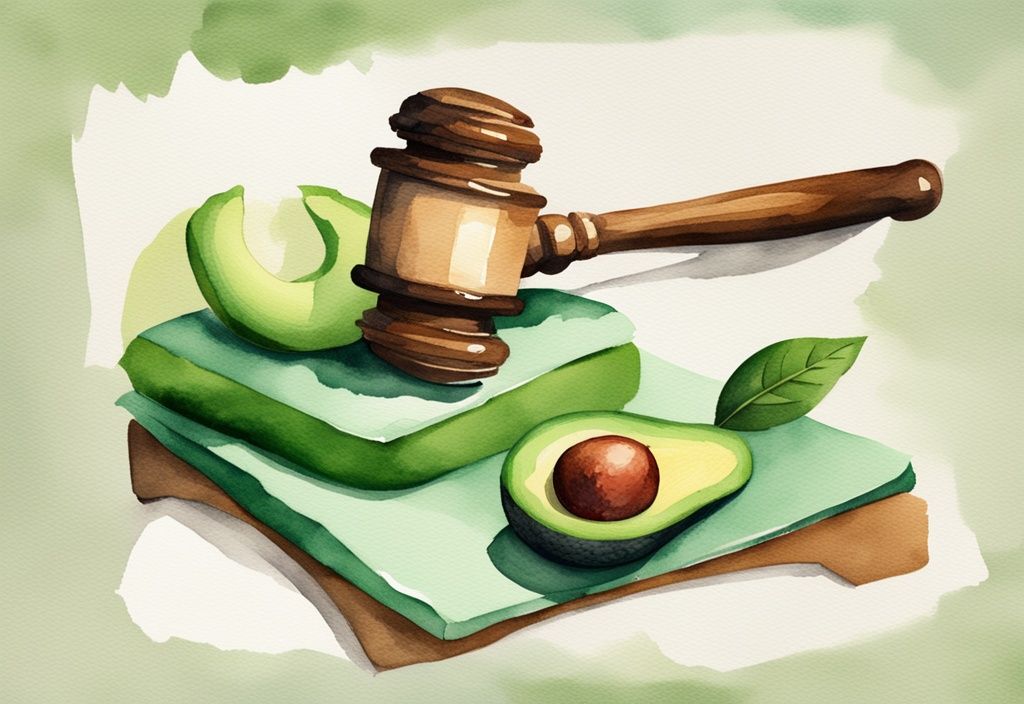
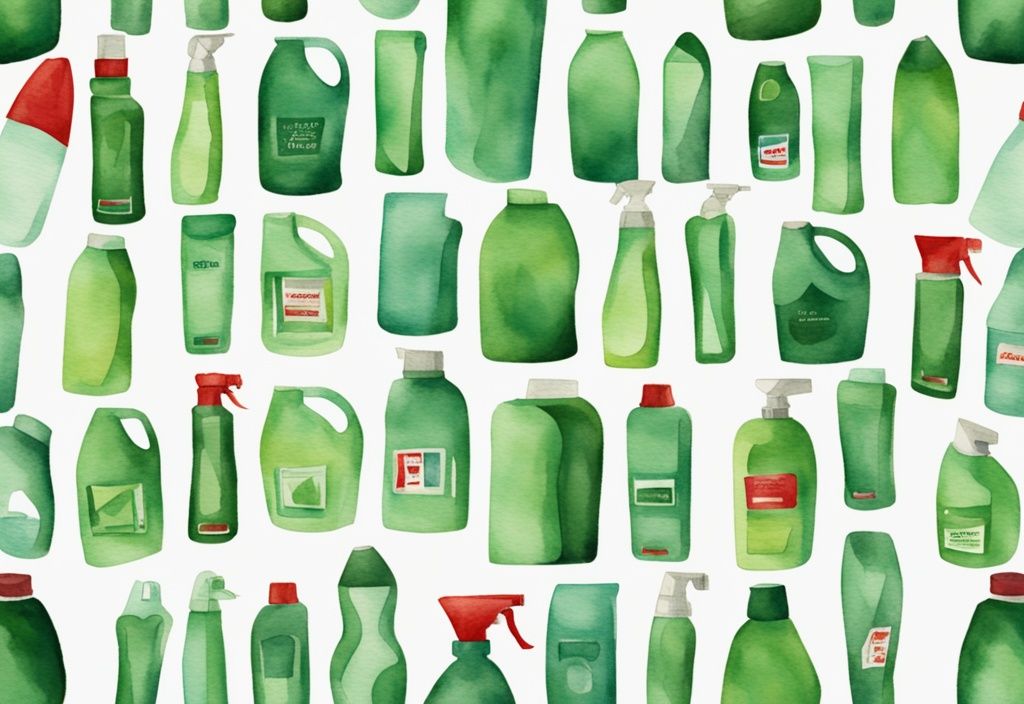
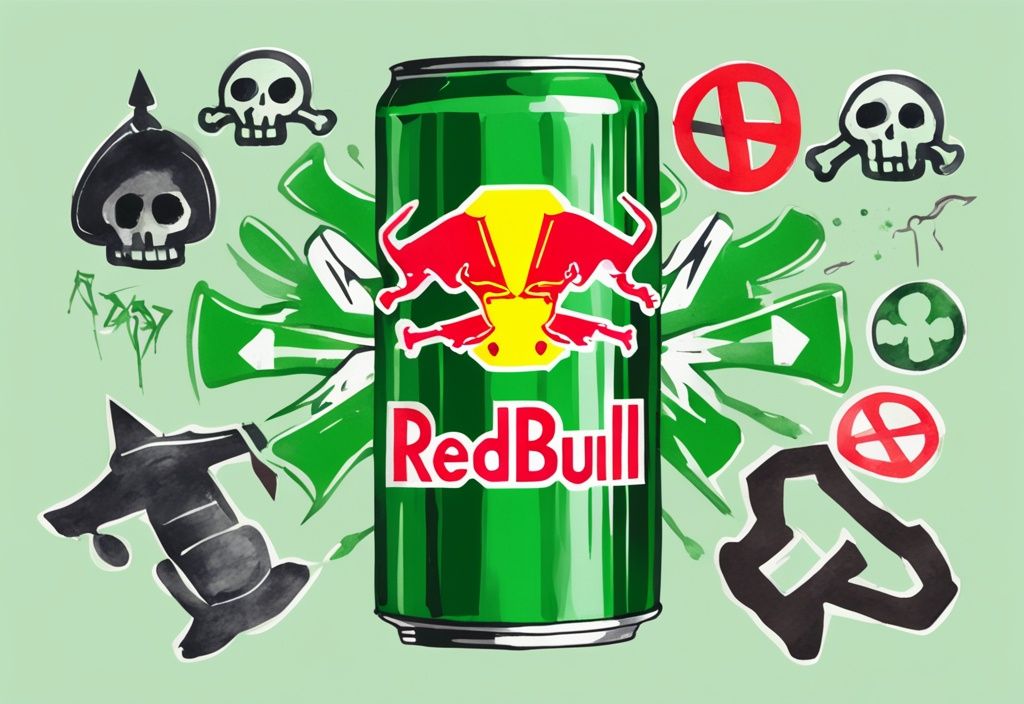






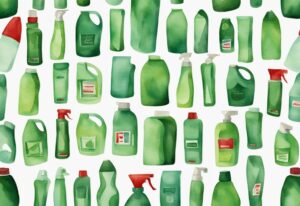


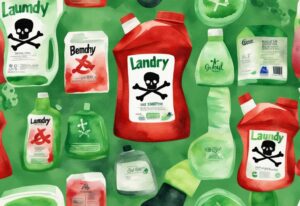

Post Comment